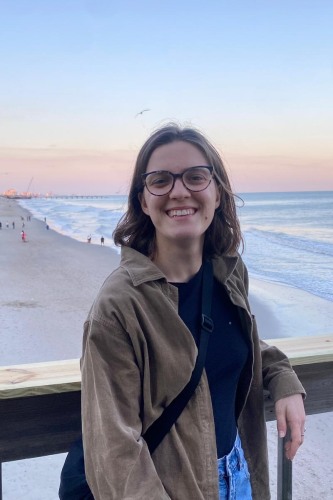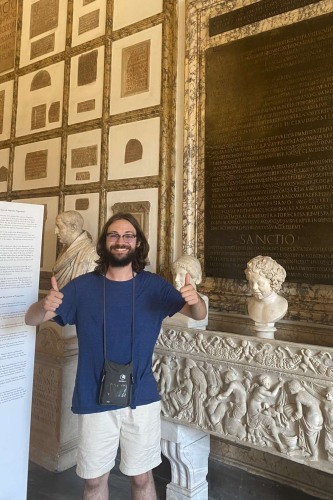Silja received her M.A. in Classical Studies at Tulane University in 2025 and her B.A. in Classics and English Literary Studies at Bucknell University in 2022. From 2022-2023 she was a recipient of the University of Pennsylvania’s Elsie Phare Fellowship and attended its post-baccalaureate in Classical Studies. In summer of 2022 she attended CUNY’s Latin and Greek Institute.
Silja's research interests center on Roman and Greek social history, literature, and gender, with particular focus on the lives and representations of enslaved laborers and freedpersons. Her M.A. thesis examined intergenerational politics and mentorship in Plutarch’s An Seni, Praecepta, and selected Lives, and she is currently developing a project on the ornatrix—enslaved female hairdressers in Roman society—using epigraphic, literary, and archaeological evidence to explore intersections of labor and power. With a focus on an interdisciplinary approach to classical studies, she aims to integrate philological rigor with insights from political philosophy, ethics, and history, connecting the study of ancient texts to broader questions of justice, effective governance, and societal structures, fostering a deeper understanding of how classical ideas inform contemporary intellectual and cultural debates.
Silja has also been a Mellon Fellow in Community-Engaged Scholarship, working on food justice initiatives in New Orleans. She recently returned to ballet after some time away and has two rescue cats.



